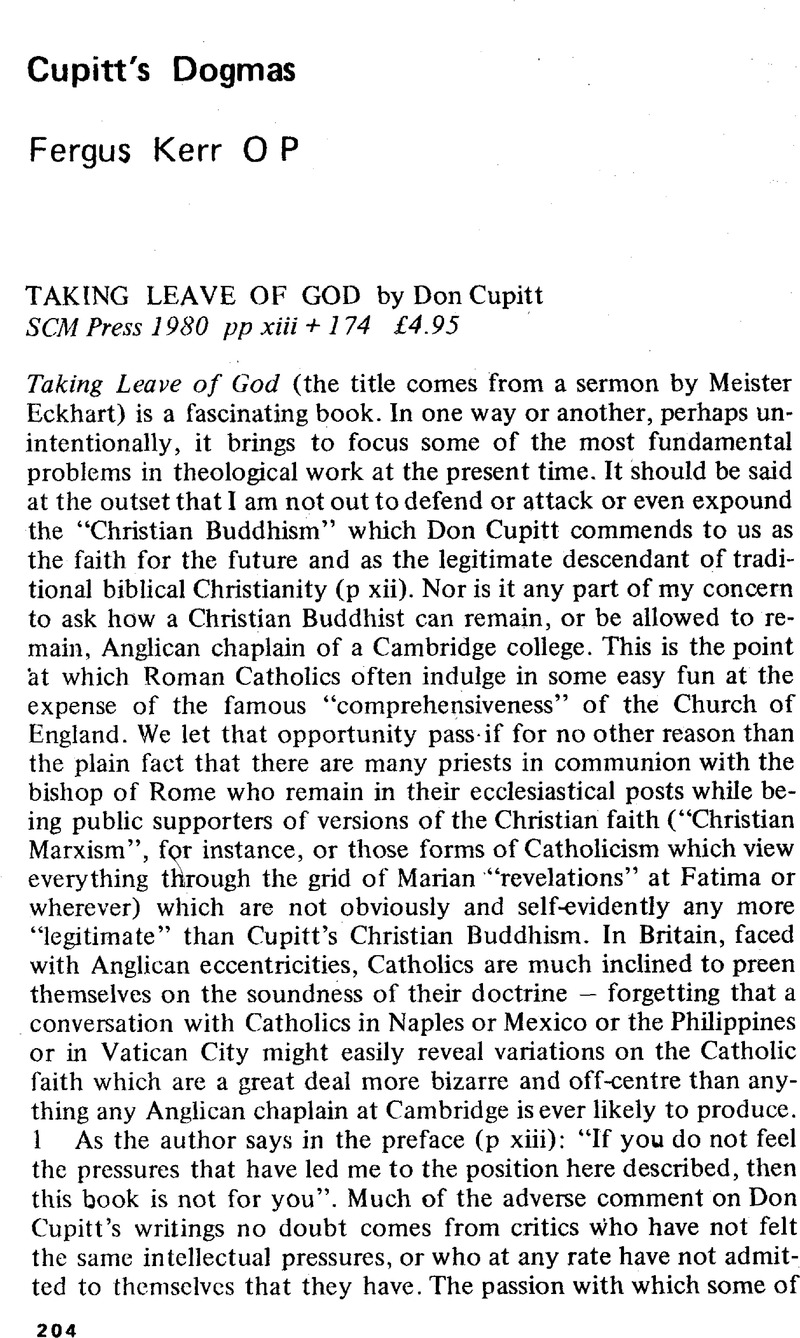No CrossRef data available.
Article contents
Cupitt's Dogmas
Review products
Published online by Cambridge University Press: 02 April 2024
Abstract

- Type
- Review Article
- Information
- Copyright
- Copyright © 1981 Provincial Council of the English Province of the Order of Preachers
References
1 A game in which I have to confess that I have played, of my review in The Journal of Theological Studies, April 1980, pp 282–3.Google Scholar
2 Cf, Wittgenstein, Zettel, no 382: “You mustn't cut off a disease of thought when you are doing philosophy. It has to run its natural course, and slow cure is all‐important. (That is why mathematicians are such bad philosophers).
3 See “The Hermeneutics of Dogmatism”, his brilliant critique of Lonergan. In The Irish Theological Quarterly 47 (1980) pp 96–118.Google Scholar
4 Cf, David, Wiggins, Sameness and Substance, p 222, and Wittgenstein. Philosophical Investigations, p 223.Google Scholar
5 Cf, Iris, Murdoch, The Sovereignty of Good, p 80 ff especially. The Grundlegung is Kant's Groundwork of the Metaphysic of Morals of 1785.Google Scholar
6 Iris Murdoch's paper “Vision and Choice in Morality” is to be found in the supplementary volume for 1956 of the Proceedings of the Aristotelian Society.
7 A landmark in this connection is the paper “Modern Moral Philosophy” by G.E.M. Anscombe in Philosophy, January 1958; but see also the beautiful paper “Virtue and Reason” by John McDowell in The Monisl, July 1979.
8 One might hope that Michael Dummett's formulation could be extended beyond its original setting in a review of a book on the philosophy of mathematics, so that we could speak of “objects springing into being in response to our probing. We do not make the objects but must accept them as we find them … but they were not already there for our statements to be true or false before we carried out the investigations which brought them into being”, Truth and Other Enigmas, p 185.


